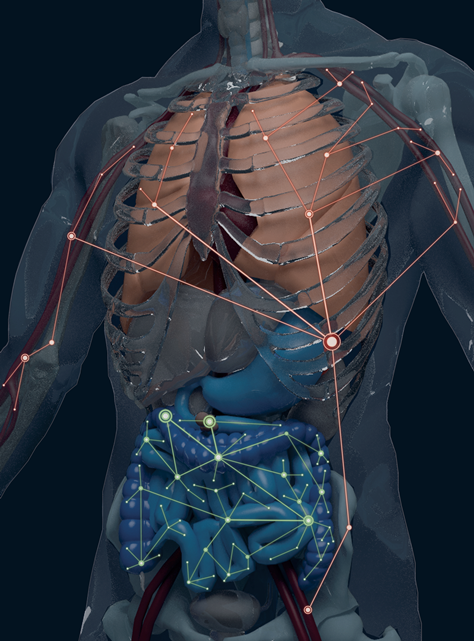Alexander H. Farley
B cells express antibodies that are key to fighting infections and preventing their re-occurrence. When they recognize cognate antigen, B cell clones expand and mutate the antibody genes to increase antigen recognition and effector function. How these B-cell-clonal lineages are distributed in the human body is not known, in large part because of the difficulty in assessing normal immune function in healthy individuals. In a paper published this week in Nature Biotechnology, Eline Luning Prak and colleagues sequence the B cell receptor heavy chain of 8 tissues in 6 human organ donors. The researchers find that the most expanded B cell clones are distributed in two networks, one that includes the blood, bone marrow, lungs and spleen, and another one comprising gut tissues (jejunum, ileum and colon). This atlas of B cell clone distribution in humans sheds light on normal immune system function and should be a useful resource to those studying response to infections and vaccines.

Please sign in or register for FREE
If you are a registered user on Research Communities by Springer Nature, please sign in